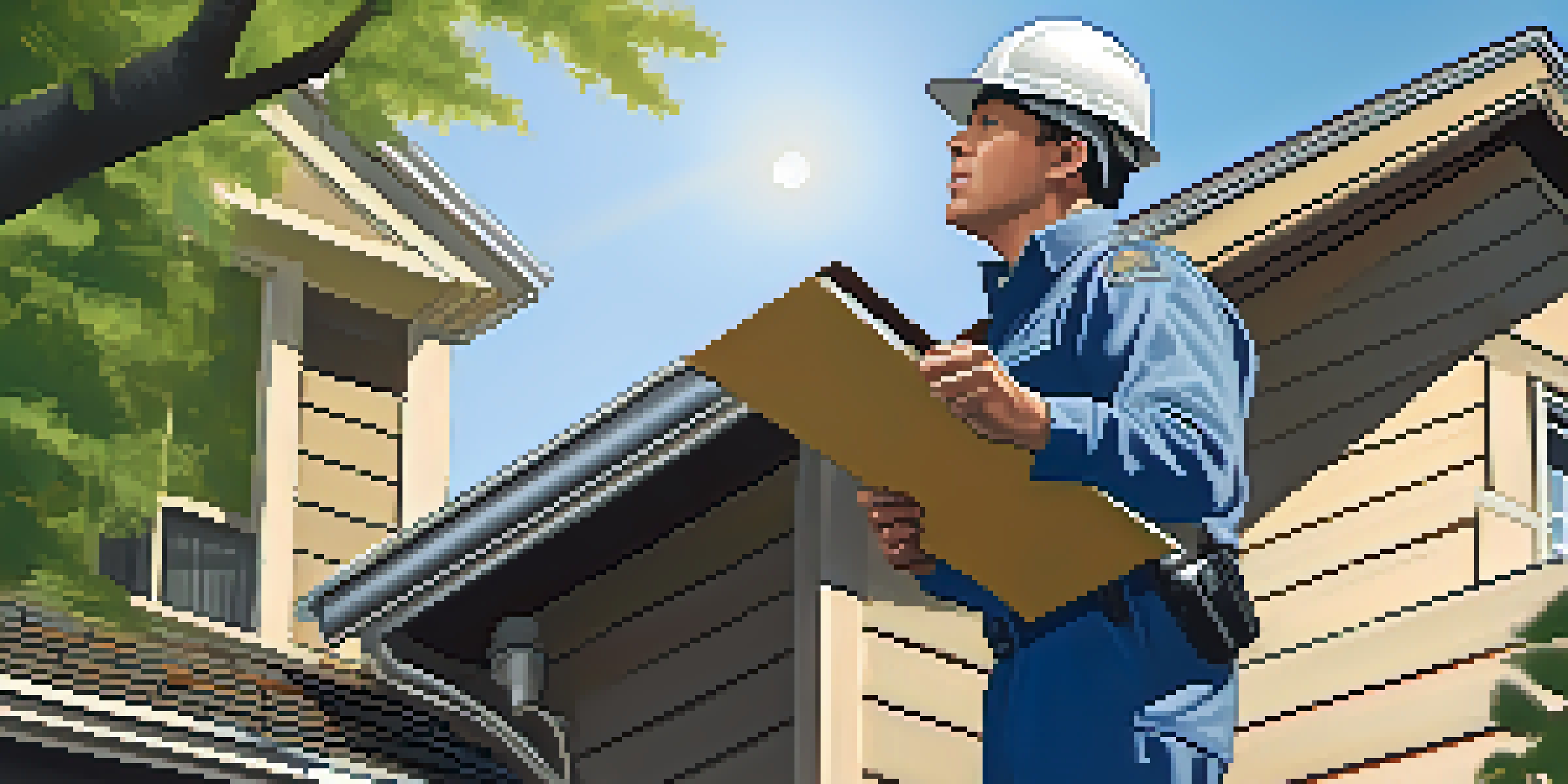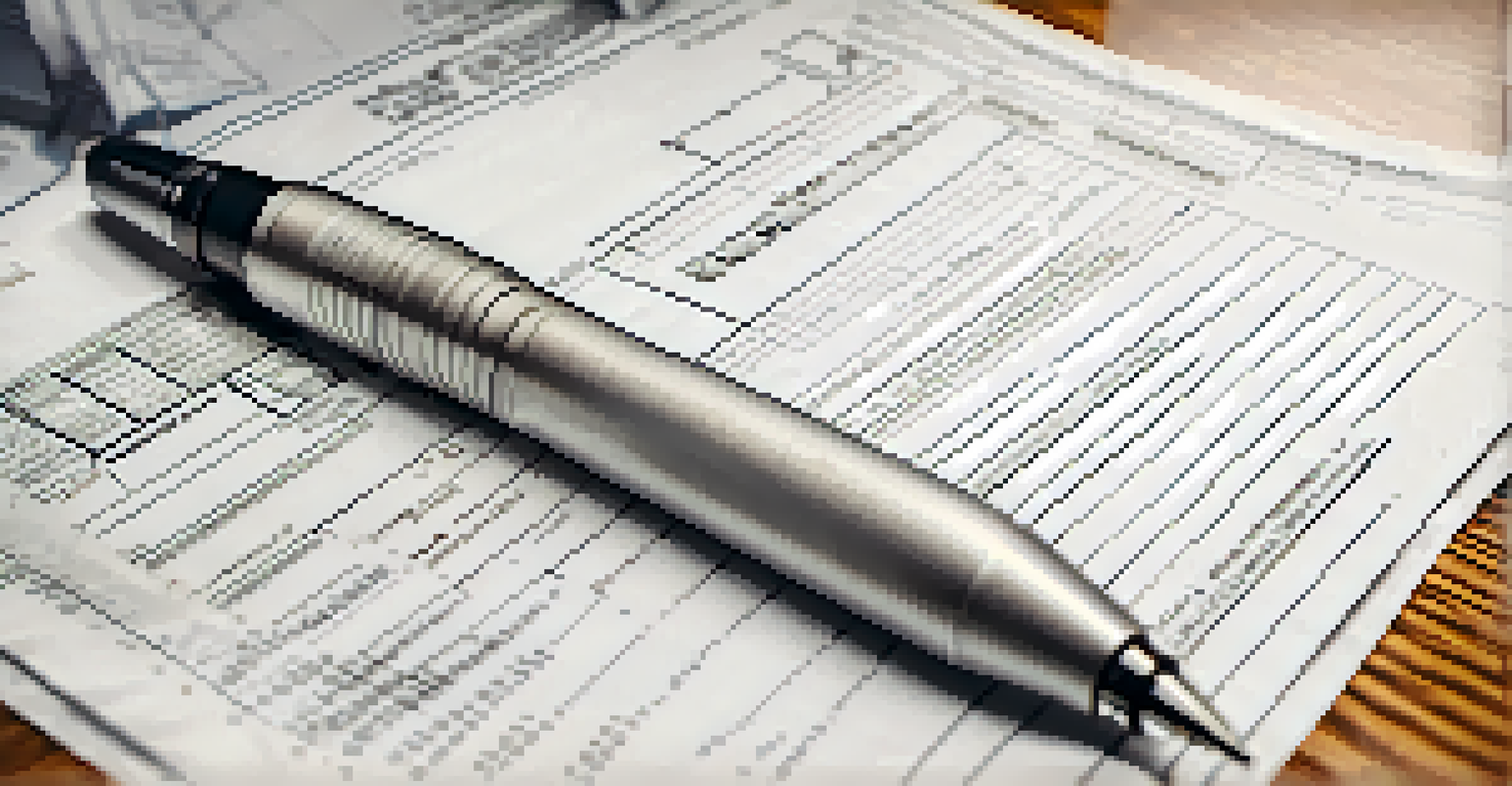Home Inspections: A Guide for Homeowners Planning Renovations

Understanding the Importance of Home Inspections
Home inspections are an essential step for homeowners planning renovations. They provide a thorough evaluation of the property's condition, identifying any hidden issues that could impact your renovation plans. Think of a home inspection as a health check-up for your house; it reveals potential problems that need attention before you can move forward with updates.
An investment in knowledge always pays the best interest.
By uncovering issues such as electrical problems, plumbing leaks, or structural weaknesses, a home inspection helps you prioritize your renovation efforts. It’s like having a roadmap that guides you through the complexities of your renovation journey. This proactive approach can save you time and money, ensuring that you address critical areas first.
Moreover, knowing the state of your home can enhance your negotiating power if you're working with contractors. You'll be armed with information that can lead to better deals and informed decisions, making your renovation experience smoother and more successful.
What to Expect During a Home Inspection
When you schedule a home inspection, it's helpful to know what to expect. Typically, a qualified inspector will assess various aspects of your home, including the roof, foundation, plumbing, electrical systems, and HVAC. They’ll take notes and photos, documenting their findings to give you a comprehensive report.

The inspection process usually takes a few hours, depending on the size of your home. During this time, you'll have the opportunity to follow the inspector around and ask questions. It’s a great chance to learn more about your home’s condition and gain insights into what might need attention during your renovation.
Home Inspections Save Time & Money
A thorough home inspection helps identify hidden issues, allowing homeowners to prioritize renovations and avoid costly surprises.
After the inspection, you'll receive a detailed report that outlines both major and minor issues. This document will serve as a valuable resource, helping you to prioritize repairs and renovations effectively. Remember, knowledge is power, and understanding your home’s condition can lead to smarter renovation choices.
Choosing the Right Home Inspector
Selecting the right home inspector is crucial for a successful inspection. Look for professionals who are certified, experienced, and come highly recommended by others. Online reviews and referrals from friends or family can guide you to reputable inspectors in your area.
The bitter taste of poor quality remains long after the sweetness of low price is forgotten.
Don't hesitate to ask potential inspectors about their qualifications and experience. A good inspector will be more than happy to share their credentials and explain their inspection process. This conversation can help you gauge their expertise and how well they might meet your needs.
Also, consider asking the inspector about their familiarity with renovation projects. An inspector who understands the renovation process can provide tailored insights that will benefit your plans. Remember, the right inspector can make a significant difference in your renovation journey.
Common Issues Found During Inspections
During a home inspection, certain issues tend to pop up more frequently than others. For instance, outdated electrical wiring or inadequate plumbing systems can pose significant challenges for renovations. These problems not only affect safety but can also derail your plans if not addressed early.
Another common finding is water damage, often hidden behind walls or under flooring. This issue can lead to mold growth and structural damage if left untreated. Identifying and resolving water issues is essential for a successful renovation, as it ensures that your home remains safe and sound.
Choose the Right Inspector
Selecting a certified and experienced home inspector can provide tailored insights that greatly benefit your renovation plans.
Lastly, structural concerns like cracks in the foundation or issues with load-bearing walls can be serious red flags. Addressing these problems before you begin renovations is critical to avoid costly repairs down the line. Knowing what to look for can help you make informed decisions about your renovation plans.
Using Inspection Findings to Plan Renovations
Once you receive the inspection report, it's time to use that information to plan your renovations. Start by prioritizing the issues that need immediate attention, such as safety hazards or structural concerns. Addressing these problems first ensures that your renovation is built on a solid foundation.
Next, consider how the findings impact your overall renovation goals. For example, if the inspector noted that your electrical system needs upgrading, this might influence your lighting and outlet plans. By integrating these insights into your design, you can create a cohesive and safe living space.
Finally, share the inspection report with your contractors. A well-informed contractor will appreciate the context provided by the report and can tailor their approach to address your home's specific needs. This collaboration can lead to a smoother renovation process and help avoid unexpected surprises along the way.
Budgeting for Renovations After Inspection
Budgeting for renovations can feel daunting, especially after an inspection reveals more issues than expected. To start, create a detailed list of all the necessary repairs and upgrades highlighted in the inspection report. This list will help you estimate costs accurately and prioritize spending.
It's wise to set aside a contingency fund, typically around 10-20% of your total renovation budget, to account for unexpected expenses. Just like packing an umbrella for a trip, this fund ensures you're prepared for any surprises that may arise during the renovation process.
Use Findings to Guide Renovations
Utilizing the inspection report to address safety hazards and structural concerns first ensures a solid foundation for your renovation.
Additionally, consider getting quotes from multiple contractors to find the best value for your money. This comparison can help you identify trends in pricing and ensure you're not overspending on any particular aspect of your renovation. With careful budgeting, you can turn your home into your dream space without breaking the bank.
The Role of Home Inspections in Selling Your Home
If you're considering selling your home after renovations, a pre-listing inspection can be beneficial. This proactive approach allows you to address any issues before potential buyers come through. Think of it as putting your best foot forward; a well-maintained home is more appealing and can lead to a quicker sale.
Additionally, having an inspection report on hand can build trust with prospective buyers. It shows that you’re transparent about your home’s condition and have taken steps to maintain it. This transparency can lead to smoother negotiations and potentially higher offers.

Ultimately, a thorough inspection can also help you determine a fair asking price for your home. By understanding its condition and addressing any problems beforehand, you can present your property in the best light possible. This strategy can set you apart in a competitive market and maximize your return on investment.